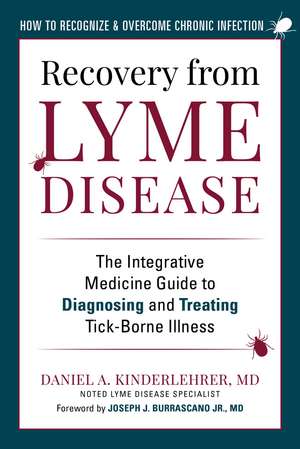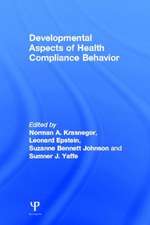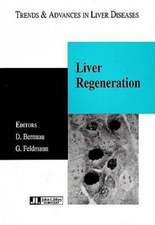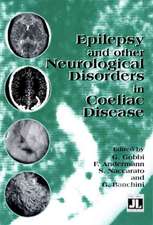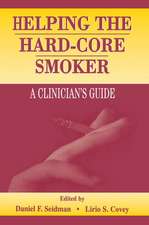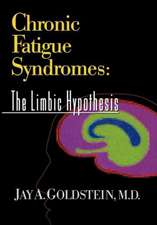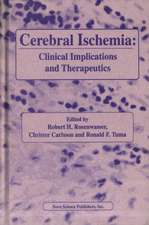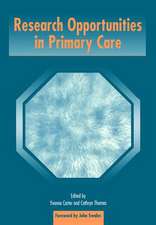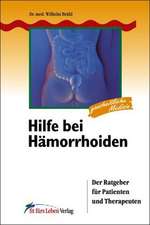Recovery from Lyme Disease: The Integrative Medicine Guide to Diagnosing and Treating Tick-Borne Illness
Autor Daniel A. Kinderlehrer MD Cuvânt înainte de Joseph J. Burrascano Jr. MDen Limba Engleză Paperback – 11 mai 2023
A detailed and thoughtful road map is sorely needed. And it is in this context that I am so pleased that we have this book by Dr. Kinderlehrer. I wish I’d had a book like this back in the day to guide me! It covers just about everything—the infections, diagnostic tests, treatments, and yes, the all-important terrain. It gives the reader an in-depth, but easily understandable, guide through the many subtleties of tick-borne illnesses. I am impressed with the knowledge presented and grateful for this information, which has helped so many people recover from chronic illness.
To anyone touched by tick-borne diseases, be they a patient, a caregiver, loved one, or health practitioner, this book is a must-read. It will serve as a continuing reference as it gets read and reread to assimilate all it has to offer. I congratulate Dr. Kinderlehrer and thank him for this most impressive work.
By far the most thorough work available on Lyme Disease Complex, this book provides patients with information that will guide them on their healing journeys, as well as supplying doctors with instruction on appropriate diagnosis and treatment approaches.
Lyme Disease is a major problem. While the CDC reported 427,000 new cases in 2017 based on surveillance criteria, actual numbers based on clinical diagnosis put that number at well over one million. It is now well accepted that 10 to 20 percent of these cases go on to become a chronic illness, and these numbers don’t even include those people who became chronically ill without ever witnessing a tick attachment or a bull’s-eye rash. In other words, hundreds of thousands of people develop a chronic illness every year with Lyme disease.
This is why Dr. Kinderlehrer’s book is so critical and timely and has the potential to help millions who are victims of this epidemic. His integrative approach offers the most up-to-date and comprehensive plan available for treating and beating this disease. It discusses brand new treatments such as disulfiram, which is being hailed as a major breakthrough, as well as the use of cannabis to treat pain, anxiety, and inflammation among other developments in the field. With the staggering growth we are seeing in numbers of people afflicted, this book becomes more important every day.
Preț: 74.94 lei
Preț vechi: 96.67 lei
-22% Nou
Puncte Express: 112
Preț estimativ în valută:
14.34€ • 15.59$ • 12.06£
14.34€ • 15.59$ • 12.06£
Carte disponibilă
Livrare economică 04-16 aprilie
Preluare comenzi: 021 569.72.76
Specificații
ISBN-13: 9781510773172
ISBN-10: 1510773177
Pagini: 384
Ilustrații: 25 charts and graphics
Dimensiuni: 152 x 229 x 28 mm
Greutate: 0.45 kg
Editura: Skyhorse
Colecția Skyhorse
ISBN-10: 1510773177
Pagini: 384
Ilustrații: 25 charts and graphics
Dimensiuni: 152 x 229 x 28 mm
Greutate: 0.45 kg
Editura: Skyhorse
Colecția Skyhorse
Notă biografică
Daniel Kinderlehrer, MD, is a nationally recognized physician with expertise in the fields of nutrition, allergy, environmental medicine, Lyme disease, and the healing of mind-body-spirit as a unified whole. He cofounded The New England Center for Holistic Medicine in Newbury, Massachusetts, and has taught extensively, including practitioner training courses at the Omega Institute, The National Institute of Behavioral Medicine, and the International Lyme and Associated Diseases Society. He created and organized the Lyme Fundamentals course which is presented annually at the International Lyme and Associated Diseases conferences. He is the author of several review articles in medical journals and the Lyme Times. His integrated medical practice in Denver, Colorado, focuses on the diagnosis and treatment of tick-borne disease.
Extras
Sometimes there is a moment in a person’s life that, although seemingly insignificant at the time, heralds a drastic and unalterable change in everything that follows. For me, it was August 15, 1996. The “insignificant event” was, I thought, a virus. I had a fever and chills. The fever was high, 104 degrees, and the chills made my teeth chatter and the bed shake. My body ached so much I felt like a discarded New England Patriots tackling dummy.
But I had no other symptoms commonly associated with the flu, no cough or respiratory congestion, and influenza does not occur in the summer. I didn’t have the upset stomach or diarrhea typical of a stomach bug, either. I never saw an insect bite, and I didn’t notice a rash. For two days I was so sick I stopped worrying I would die, and started fearing that I would live. On the third day, it was all just a memory.
It seemed quite strange, but since I was able to resume full activity, including several three-mile runs, I didn’t think much of it—until one week later, when it hit again. Once more, the fever, chills, and muscle aches lasted two days and then went away. Still pretty strange, I thought, but since I felt well after this relapse I chose to ignore it. Denial works well when you feel okay. But when the symptoms recurred for the third time a week later, the denial stopped working and I began to worry. This time I went to see a physician friend of mine. Upon examination, he palpated an enlarged spleen. He ordered some blood tests, and the laboratory reported a positive antibody test to Lyme. The diagnosis came as a relief. The cause of my problems was a simple bacterial infection. Two weeks of antibiotics would clear it, and then I could resume my normal life.
Was I in for a surprise.
I tolerated the antibiotics without difficulty, and the fever and chills did not return. But instead of feeling better, I felt worse. The next symptom that hit me, and hit me hard, was insomnia. One night I woke up at 4:00 a.m., and couldn’t fall back to sleep. The next night I woke up at 3:00 a.m., the next at 2:00 a.m., and then 1:00 a.m., unable to go back to sleep. This went on for weeks. I only slept a few hours a night. I was exhausted. But even worse, I became consumed with anxiety.
I would lie awake through the dark hours of the night riddled with fear. Initially the apprehension focused on my sleeplessness, anticipating the difficulty of getting through the day in my worn-out state. Gradually the anxiety generalized into a constant dread that something terrible was about to happen—impending doom. It wasn’t rational. It wasn’t something I could control with reason. It was just always there. It felt like a black cloud was enveloping me, cutting me off from any future; it was pure existential terror. It was so intense that some nights, as I lay awake with insomnia, I shook so violently that I added disrupting the San Andreas fault to my list of fears—and I was living in Boston!
Although I’m a physician, I had little experience with Lyme. So I mustered what energy I could—I phoned a Lyme specialist in Boston at the Tufts-New England Medical Center, my alma mater, who was considered a world expert in Lyme disease and asked for advice. He listened courteously to my story as I described my history of symptoms and lab tests, but what he told me came as a shock.
“You don’t have Lyme,” he concluded.
I was confused. “Well, then, what do I have?”
“Something else,” he replied.
“But what about the lab tests?” I asked. “Using the Western blot technique, the assay demonstrated the presence of antibodies highly specific for Lyme. I even repeated the tests one month later, and they confirmed the initial results. Isn’t this the CDC criteria for the diagnosis of Lyme?”
“The laboratory must have been wrong,” he informed me.
“Why do you think I don’t have Lyme?” I responded.
“Because if you had Lyme, you’d be better by now.”
I thanked him for his time, hung up the phone, and tried to make sense out of what I had just heard. I considered this doctor’s logic: if the cure didn’t work, I didn’t have the disease. I had had an acute illness with fever, chills, and muscle aches. I had blood tests that confirmed a diagnosis of Lyme. I lived in an area endemic for Lyme. I had seen deer ticks on our dog. I continued to feel terrible, but I didn’t have Lyme because I wasn’t better. I was getting my first taste of the controversies surrounding Lyme disease.
Next I consulted with a friend and colleague, a physician in upstate New York who treats a lot of people with Lyme. When I told him what the Lyme expert had said he replied, “Welcome to the Lyme wars.” He informed me that there are two different Lyme camps: those who maintain that Lyme is hard to get and easy to treat, and those who believe Lyme is easy to get and hard to treat. The so-called Lyme expert was a strong proponent to the former. Given my personal experience, I now subscribed to the latter.
What is clear now is that while the Lyme expert was categorically wrong when he denied I had Lyme, he was correct that I did indeed have “something else.” The something else was a co-infection, specifically Babesia. However, this bug was under the radar in 1996. If I were taking my history now, I would immediately suspect this infection.
I have shared my story here because there are millions of people today suffering as I did: people who are losing their cognitive function, are severely depressed, anxious and irritable, in chronic pain, and tired beyond exhaustion; people who are losing their jobs, are disabled, are going bankrupt, and whose families are breaking up; people who are contemplating suicide—and sometimes following through. The toll in medical costs and lost income is huge. The toll in human suffering is beyond calculation.
The bad news I learned on my journey is that there is no single treatment regimen that will cure any chronic illness—no magic pill, no simple injection. Healing from chronic illness requires a multipronged and multidimensional approach. Each person is different, and treatment protocols need to be individualized. It requires assembling the pieces of a puzzle, with each person presenting his or her own clues. There is no single recipe for success.
While Lyme has been the worst thing that has ever happened to me, it has also been the best. This experience has been profoundly humbling. There were times I felt so poorly that the only way I could get through the day was to tell myself that tomorrow I could commit suicide. But Lyme has also blessed me with deep compassion and empathy for others who are suffering. Lyme has stirred in me a passionate commitment to help others who are challenged with this illness. Lyme has filled me with hope that each and every patient coming through my office door will get well. I can’t think of anything more rewarding or more gratifying than helping people restore their well-being.
My medical practice is now limited to treating people with tick-borne infections. And despite living in Colorado, where the state Department of Health continues to deny that one can acquire Lyme disease, I have a long waiting list that keeps growing. There is a huge need out there for more Lyme literate practitioners, and I hope this book will help both physicians and patients better address this tremendous demand.
But I had no other symptoms commonly associated with the flu, no cough or respiratory congestion, and influenza does not occur in the summer. I didn’t have the upset stomach or diarrhea typical of a stomach bug, either. I never saw an insect bite, and I didn’t notice a rash. For two days I was so sick I stopped worrying I would die, and started fearing that I would live. On the third day, it was all just a memory.
It seemed quite strange, but since I was able to resume full activity, including several three-mile runs, I didn’t think much of it—until one week later, when it hit again. Once more, the fever, chills, and muscle aches lasted two days and then went away. Still pretty strange, I thought, but since I felt well after this relapse I chose to ignore it. Denial works well when you feel okay. But when the symptoms recurred for the third time a week later, the denial stopped working and I began to worry. This time I went to see a physician friend of mine. Upon examination, he palpated an enlarged spleen. He ordered some blood tests, and the laboratory reported a positive antibody test to Lyme. The diagnosis came as a relief. The cause of my problems was a simple bacterial infection. Two weeks of antibiotics would clear it, and then I could resume my normal life.
Was I in for a surprise.
I tolerated the antibiotics without difficulty, and the fever and chills did not return. But instead of feeling better, I felt worse. The next symptom that hit me, and hit me hard, was insomnia. One night I woke up at 4:00 a.m., and couldn’t fall back to sleep. The next night I woke up at 3:00 a.m., the next at 2:00 a.m., and then 1:00 a.m., unable to go back to sleep. This went on for weeks. I only slept a few hours a night. I was exhausted. But even worse, I became consumed with anxiety.
I would lie awake through the dark hours of the night riddled with fear. Initially the apprehension focused on my sleeplessness, anticipating the difficulty of getting through the day in my worn-out state. Gradually the anxiety generalized into a constant dread that something terrible was about to happen—impending doom. It wasn’t rational. It wasn’t something I could control with reason. It was just always there. It felt like a black cloud was enveloping me, cutting me off from any future; it was pure existential terror. It was so intense that some nights, as I lay awake with insomnia, I shook so violently that I added disrupting the San Andreas fault to my list of fears—and I was living in Boston!
Although I’m a physician, I had little experience with Lyme. So I mustered what energy I could—I phoned a Lyme specialist in Boston at the Tufts-New England Medical Center, my alma mater, who was considered a world expert in Lyme disease and asked for advice. He listened courteously to my story as I described my history of symptoms and lab tests, but what he told me came as a shock.
“You don’t have Lyme,” he concluded.
I was confused. “Well, then, what do I have?”
“Something else,” he replied.
“But what about the lab tests?” I asked. “Using the Western blot technique, the assay demonstrated the presence of antibodies highly specific for Lyme. I even repeated the tests one month later, and they confirmed the initial results. Isn’t this the CDC criteria for the diagnosis of Lyme?”
“The laboratory must have been wrong,” he informed me.
“Why do you think I don’t have Lyme?” I responded.
“Because if you had Lyme, you’d be better by now.”
I thanked him for his time, hung up the phone, and tried to make sense out of what I had just heard. I considered this doctor’s logic: if the cure didn’t work, I didn’t have the disease. I had had an acute illness with fever, chills, and muscle aches. I had blood tests that confirmed a diagnosis of Lyme. I lived in an area endemic for Lyme. I had seen deer ticks on our dog. I continued to feel terrible, but I didn’t have Lyme because I wasn’t better. I was getting my first taste of the controversies surrounding Lyme disease.
Next I consulted with a friend and colleague, a physician in upstate New York who treats a lot of people with Lyme. When I told him what the Lyme expert had said he replied, “Welcome to the Lyme wars.” He informed me that there are two different Lyme camps: those who maintain that Lyme is hard to get and easy to treat, and those who believe Lyme is easy to get and hard to treat. The so-called Lyme expert was a strong proponent to the former. Given my personal experience, I now subscribed to the latter.
What is clear now is that while the Lyme expert was categorically wrong when he denied I had Lyme, he was correct that I did indeed have “something else.” The something else was a co-infection, specifically Babesia. However, this bug was under the radar in 1996. If I were taking my history now, I would immediately suspect this infection.
I have shared my story here because there are millions of people today suffering as I did: people who are losing their cognitive function, are severely depressed, anxious and irritable, in chronic pain, and tired beyond exhaustion; people who are losing their jobs, are disabled, are going bankrupt, and whose families are breaking up; people who are contemplating suicide—and sometimes following through. The toll in medical costs and lost income is huge. The toll in human suffering is beyond calculation.
The bad news I learned on my journey is that there is no single treatment regimen that will cure any chronic illness—no magic pill, no simple injection. Healing from chronic illness requires a multipronged and multidimensional approach. Each person is different, and treatment protocols need to be individualized. It requires assembling the pieces of a puzzle, with each person presenting his or her own clues. There is no single recipe for success.
While Lyme has been the worst thing that has ever happened to me, it has also been the best. This experience has been profoundly humbling. There were times I felt so poorly that the only way I could get through the day was to tell myself that tomorrow I could commit suicide. But Lyme has also blessed me with deep compassion and empathy for others who are suffering. Lyme has stirred in me a passionate commitment to help others who are challenged with this illness. Lyme has filled me with hope that each and every patient coming through my office door will get well. I can’t think of anything more rewarding or more gratifying than helping people restore their well-being.
My medical practice is now limited to treating people with tick-borne infections. And despite living in Colorado, where the state Department of Health continues to deny that one can acquire Lyme disease, I have a long waiting list that keeps growing. There is a huge need out there for more Lyme literate practitioners, and I hope this book will help both physicians and patients better address this tremendous demand.
Recenzii
“Many of the illnesses that have proven difficult to treat effectively—such as lupus, multiple sclerosis, Alzheimer’s disease, and Lou Gehrig’s disease—are diseases without known cause. In Recovery from Lyme: The Integrative Medicine Guide to Diagnosing and Treating Tick-Borne Illness, Dr. Daniel Kinderlehrer shows that tick-borne illnesses such as Lyme disease (Borreliosis), Bartonellosis, and Babesiosis, may be associated with a surprisingly wide range of symptoms and diseases, from multiple sclerosis to PANS (pediatric acute onset neuropsychiatric syndrome) to depression to rheumatoid arthritis and many more. Dr. Kinderlehrer describes how to recognize, evaluate, and treat these tick-borne illnesses, and the important lessons he offers in this book could alleviate suffering for the many in whom these diseases often go unrecognized. I recommend this book highly for anyone dealing with the diverse symptoms that may be related to tick-borne illnesses.”
—Dale Bredesen, MD, professor and New York Times bestselling author of The End of Alzheimer’s
"Dr. Kinderlehrer’s approach to treating Lyme is a model of how medicine should be practiced. He combines meticulous, compassionate attention to all aspects of a patient’s health together with both rigorous attention to evidence informed by extensive knowledge of published and unpublished studies as well as an openness to consider novel therapies when more traditional therapies prove ineffective."
—Peter Van Etten, former President/CEO of Stanford Medical Center
“Dr. Daniel Kinderlehrer has written a comprehensive and readable book for both physicians and consumers that will provide them with an excellent understanding of what Lyme disease is and how to treat it. Recovery from Lyme is filled with patient stories that will enable the public to resonate to this information and assimilate it more easily. Having struggled with his own Lyme disease and finding his own path to healing, who better to provide this guide?”
—Neil Nathan, MD, author of Toxic: Heal Your Body from Mold Toxicity, Lyme Disease, Multiple Chemical Sensitivities, and Chronic Environmental Illness
“In this comprehensive and informative book, Dr. Kinderlehrer brings to the table his many years of research and experience with chronic Lyme disease patients. He shares in a succinct, yet easy to understand format, the multifaceted challenges of treating one of today's most complex and debilitating diseases. Perhaps even more importantly, he provides solid, research-based solutions that have been helpful for enabling many thousands of Lyme disease patients to recover their lives. These include natural as well as pharmaceutical remedies, as well as therapies that restore every organ and system of the body. Dr. Kinderlehrer's approach goes beyond removing infections, and addresses the healing of the whole person, which is key to recovering from this disease. Readers will find a wealth of powerful insights and keys in this book that will enable them and/or their patients to overcome and get their lives back.”
—Connie Strasheim, health consultant, medical researcher, and co/author of 12+ books on Lyme disease, cancer, detoxification, nutrition, sleep, and spiritual/emotional healing
“If you are a health practitioner unfamiliar with Lyme disease and other tick-borne infections, or if you have been treating these conditions for years (or if you are anywhere in between), Daniel Kinderlehrer’s Recovery from Lyme Disease will likely become your most valued guide for how to best diagnose and treat these patients. And if you are not a medical person but wish or need to learn how a master physician would evaluate and treat you, this is the book for you. It is written in language that a layperson will easily understand and yet has the depth that any health professional will appreciate. What is so unique and immensely skillful of Dr. Kinderlehrer’s work is that he is able to broaden one’s perspective while seamlessly holding a magnifying glass over critical details. It is so rare in my experience to read a book that is both academic and yet is equally clinical. And it is additionally rare and even precious that a doctor can be both authoritative and humble. It is most evident that Dr. Kinderlehrer has dedicated himself to learning everything he has been able to learn to best understand and help his patients. And now, as the teacher he is, he has given us a true gift to become more skillful with Lyme patients and truly better physicians. Bravo, Dr. Kinderlehrer!”
—Ralph Golan, MD, author of Optimal Wellness: Where Mainstream and Alternative Medicine Meet
“Dr. Kinderlehrer's book is the most authoritative compendium to date on the numerous facets of an illness that deserves so much more than a simple four-letter label. For the masses suffering with this complex, multi-factorial illness that does not exist in the medical mainstream, Dr. Kinderlehrer's book will come as an inspiration for patients and a guiding light for physicians. He shares the culmination of nearly 50 years' clinical practice in this gem of a book that will enrich generations to come. There is no praise high enough for his work both with patients and teaching other physicians. Thanks to Dr. Kinderlehrer for teaching me the subtleties and nuances of treating this labyrinthine disease.”
—Julie M. Barter, ND
“In Recovery from Lyme: The Integrative Guide to the Diagnosis and Treatment of Tick-Borne Illness, which draws from the author's over 40 years’ experience as a holistic practitioner, Dan Kinderlehrer, MD, shares a comprehensive approach to the treatment of Lyme disease and the myriad factors that it often entails. Having had his own at-times devastating journey through Lyme disease which ultimately served as one of his greatest gifts and teachers, Kinderlehrer shares his passion, wisdom, and experience in hopes of helping others to recover their lives.”
—Scott Forsgren, FDN-P, editor and founder of BetterHealthGuy.com
“In his book, Recovery from Lyme Disease: The Integrative Guide to the Diagnosis and Treatment of Tick-Borne Illness, Dr. Dan Kinderlehrer outlines the controversies associated with this condition. That there remains an ongoing misconception, perpetuated by major organizations in the medical community, dismissing that the condition ‘Chronic Lyme Disease’ even exists. In this treatise, the lack of evidence for the dismissal of this condition, weighed against both animal and human studies supporting the existence of this condition, is articulated. In so doing, Dr. Kinderlehrer uses the opportunity to help validate the real nature of this entity for so many afflicted. Further, Dr. Kinderlehrer outlines a number of potential integrative interventions that may help empower individuals in the management of their own recoveries.”
—Samuel Shor, MD, FACP, chair of Loudoun County Lyme Commission, past president of International Lyme and Associated Diseases Society, associate clinical professor at George Washington University Health Care Sciences
“I enjoyed reading Dr. Kinderlehrer’s book. It is a well-written scientific text that provides a comprehensive review of Lyme and other tick-borne diseases. It provides the need for an updated text on the subject. It reviews thoroughly the complex subject from diagnosis to treatment and describes the controversy between the mainstream medical community and a minority of physicians described as ‘Lyme Literate Doctors' (LLD). The majority, headed by the IDSA (Infectious Diseases Society of America), don’t acknowledge the extent of those diseases, their chronicity, their impact on the American society, and the need for prolonged and multidisciplinary treatment approach for these patients. It is disappointing that a group of diseases leading to disabling neuropsychiatric diseases is managed by rheumatologists and infectious disease specialists. Dr. Kinderlehrer represents a relatively small group of physicians that through years of clinical and scientific experience have recognized the complexity of tick-borne diseases’ diagnosis and treatments. We are in an era of medical practice where patients’ conditions are broken into different disciplines and referred to specialists who not infrequently fail to communicate with each other. Dr. Kinderlehrer is one of those rare physicians capable of seeing the patient as a whole person, which is the only approach that can lead to successful management of the chronically ill complex patients. Dr. Kinderlehrer’s book represents this approach and in addition to treatments brought by allopathic medicine provides treatments offered by integrative medicine. The book is an important addition to the very much needed comprehensive literature on Lyme and tick-borne diseases. The book is a must for every open-minded practitioner. Highly recommended!”
—Amiram Katz, MD
“Dr. Kinderlehrer writes with the heart of a philosopher and the head of a scientist. This comprehensive book is much needed to advance our current understanding of Lyme and its related infections. Dr. Kinderlehrer presents this material in a clear and concise way that can be easily understood by both patients and clinicians. This is a must-read for anyone searching for a balanced approach to this complex, and often misunderstood, group of infections.”
—Dr. Wayne Anderson, ND
"In their quest to heal, patients sick with Lyme and co-infections can lose their way amidst the hopelessness of denialism, the woo of snake oil, and the frightening stories online. If you have been searching for real help, heave a sigh of relief and stop here. With the rigor of classic training in Western medicine, decades at the forefront of integrative medicine, and the sensitivity that comes from being a Lyme patient himself, the brilliant Dr. Kinderlehrer clearly and deftly rolls out the inside science of Lyme disease and the treatments and lifestyle changes, both allopathic and alternative, that have helped his patients regain their lives."
—Pamela Weintraub, author of Cure Unknown: Inside the Lyme Epidemic
"Dr. Dan Kinderlehrer has been on the front lines of Lyme and other tick-borne diseases for decades. He writes this book from the perspective of a physician who has the long-term responsibility of treating and helping these very challenging patients. After experiencing what he has seen with this epidemic, he has been motivated to take the responsibility to share his observations and research by writing this book. I thank Dr. Kinderlehrer for taking the time and effort to organize and share his experiences and insights to help others."
—Robert C. Bransfield, MD, DLFAPA
—Dale Bredesen, MD, professor and New York Times bestselling author of The End of Alzheimer’s
"Dr. Kinderlehrer’s approach to treating Lyme is a model of how medicine should be practiced. He combines meticulous, compassionate attention to all aspects of a patient’s health together with both rigorous attention to evidence informed by extensive knowledge of published and unpublished studies as well as an openness to consider novel therapies when more traditional therapies prove ineffective."
—Peter Van Etten, former President/CEO of Stanford Medical Center
“Dr. Daniel Kinderlehrer has written a comprehensive and readable book for both physicians and consumers that will provide them with an excellent understanding of what Lyme disease is and how to treat it. Recovery from Lyme is filled with patient stories that will enable the public to resonate to this information and assimilate it more easily. Having struggled with his own Lyme disease and finding his own path to healing, who better to provide this guide?”
—Neil Nathan, MD, author of Toxic: Heal Your Body from Mold Toxicity, Lyme Disease, Multiple Chemical Sensitivities, and Chronic Environmental Illness
“In this comprehensive and informative book, Dr. Kinderlehrer brings to the table his many years of research and experience with chronic Lyme disease patients. He shares in a succinct, yet easy to understand format, the multifaceted challenges of treating one of today's most complex and debilitating diseases. Perhaps even more importantly, he provides solid, research-based solutions that have been helpful for enabling many thousands of Lyme disease patients to recover their lives. These include natural as well as pharmaceutical remedies, as well as therapies that restore every organ and system of the body. Dr. Kinderlehrer's approach goes beyond removing infections, and addresses the healing of the whole person, which is key to recovering from this disease. Readers will find a wealth of powerful insights and keys in this book that will enable them and/or their patients to overcome and get their lives back.”
—Connie Strasheim, health consultant, medical researcher, and co/author of 12+ books on Lyme disease, cancer, detoxification, nutrition, sleep, and spiritual/emotional healing
“If you are a health practitioner unfamiliar with Lyme disease and other tick-borne infections, or if you have been treating these conditions for years (or if you are anywhere in between), Daniel Kinderlehrer’s Recovery from Lyme Disease will likely become your most valued guide for how to best diagnose and treat these patients. And if you are not a medical person but wish or need to learn how a master physician would evaluate and treat you, this is the book for you. It is written in language that a layperson will easily understand and yet has the depth that any health professional will appreciate. What is so unique and immensely skillful of Dr. Kinderlehrer’s work is that he is able to broaden one’s perspective while seamlessly holding a magnifying glass over critical details. It is so rare in my experience to read a book that is both academic and yet is equally clinical. And it is additionally rare and even precious that a doctor can be both authoritative and humble. It is most evident that Dr. Kinderlehrer has dedicated himself to learning everything he has been able to learn to best understand and help his patients. And now, as the teacher he is, he has given us a true gift to become more skillful with Lyme patients and truly better physicians. Bravo, Dr. Kinderlehrer!”
—Ralph Golan, MD, author of Optimal Wellness: Where Mainstream and Alternative Medicine Meet
“Dr. Kinderlehrer's book is the most authoritative compendium to date on the numerous facets of an illness that deserves so much more than a simple four-letter label. For the masses suffering with this complex, multi-factorial illness that does not exist in the medical mainstream, Dr. Kinderlehrer's book will come as an inspiration for patients and a guiding light for physicians. He shares the culmination of nearly 50 years' clinical practice in this gem of a book that will enrich generations to come. There is no praise high enough for his work both with patients and teaching other physicians. Thanks to Dr. Kinderlehrer for teaching me the subtleties and nuances of treating this labyrinthine disease.”
—Julie M. Barter, ND
“In Recovery from Lyme: The Integrative Guide to the Diagnosis and Treatment of Tick-Borne Illness, which draws from the author's over 40 years’ experience as a holistic practitioner, Dan Kinderlehrer, MD, shares a comprehensive approach to the treatment of Lyme disease and the myriad factors that it often entails. Having had his own at-times devastating journey through Lyme disease which ultimately served as one of his greatest gifts and teachers, Kinderlehrer shares his passion, wisdom, and experience in hopes of helping others to recover their lives.”
—Scott Forsgren, FDN-P, editor and founder of BetterHealthGuy.com
“In his book, Recovery from Lyme Disease: The Integrative Guide to the Diagnosis and Treatment of Tick-Borne Illness, Dr. Dan Kinderlehrer outlines the controversies associated with this condition. That there remains an ongoing misconception, perpetuated by major organizations in the medical community, dismissing that the condition ‘Chronic Lyme Disease’ even exists. In this treatise, the lack of evidence for the dismissal of this condition, weighed against both animal and human studies supporting the existence of this condition, is articulated. In so doing, Dr. Kinderlehrer uses the opportunity to help validate the real nature of this entity for so many afflicted. Further, Dr. Kinderlehrer outlines a number of potential integrative interventions that may help empower individuals in the management of their own recoveries.”
—Samuel Shor, MD, FACP, chair of Loudoun County Lyme Commission, past president of International Lyme and Associated Diseases Society, associate clinical professor at George Washington University Health Care Sciences
“I enjoyed reading Dr. Kinderlehrer’s book. It is a well-written scientific text that provides a comprehensive review of Lyme and other tick-borne diseases. It provides the need for an updated text on the subject. It reviews thoroughly the complex subject from diagnosis to treatment and describes the controversy between the mainstream medical community and a minority of physicians described as ‘Lyme Literate Doctors' (LLD). The majority, headed by the IDSA (Infectious Diseases Society of America), don’t acknowledge the extent of those diseases, their chronicity, their impact on the American society, and the need for prolonged and multidisciplinary treatment approach for these patients. It is disappointing that a group of diseases leading to disabling neuropsychiatric diseases is managed by rheumatologists and infectious disease specialists. Dr. Kinderlehrer represents a relatively small group of physicians that through years of clinical and scientific experience have recognized the complexity of tick-borne diseases’ diagnosis and treatments. We are in an era of medical practice where patients’ conditions are broken into different disciplines and referred to specialists who not infrequently fail to communicate with each other. Dr. Kinderlehrer is one of those rare physicians capable of seeing the patient as a whole person, which is the only approach that can lead to successful management of the chronically ill complex patients. Dr. Kinderlehrer’s book represents this approach and in addition to treatments brought by allopathic medicine provides treatments offered by integrative medicine. The book is an important addition to the very much needed comprehensive literature on Lyme and tick-borne diseases. The book is a must for every open-minded practitioner. Highly recommended!”
—Amiram Katz, MD
“Dr. Kinderlehrer writes with the heart of a philosopher and the head of a scientist. This comprehensive book is much needed to advance our current understanding of Lyme and its related infections. Dr. Kinderlehrer presents this material in a clear and concise way that can be easily understood by both patients and clinicians. This is a must-read for anyone searching for a balanced approach to this complex, and often misunderstood, group of infections.”
—Dr. Wayne Anderson, ND
"In their quest to heal, patients sick with Lyme and co-infections can lose their way amidst the hopelessness of denialism, the woo of snake oil, and the frightening stories online. If you have been searching for real help, heave a sigh of relief and stop here. With the rigor of classic training in Western medicine, decades at the forefront of integrative medicine, and the sensitivity that comes from being a Lyme patient himself, the brilliant Dr. Kinderlehrer clearly and deftly rolls out the inside science of Lyme disease and the treatments and lifestyle changes, both allopathic and alternative, that have helped his patients regain their lives."
—Pamela Weintraub, author of Cure Unknown: Inside the Lyme Epidemic
"Dr. Dan Kinderlehrer has been on the front lines of Lyme and other tick-borne diseases for decades. He writes this book from the perspective of a physician who has the long-term responsibility of treating and helping these very challenging patients. After experiencing what he has seen with this epidemic, he has been motivated to take the responsibility to share his observations and research by writing this book. I thank Dr. Kinderlehrer for taking the time and effort to organize and share his experiences and insights to help others."
—Robert C. Bransfield, MD, DLFAPA
Descriere
By far the most thorough work available on Lyme Disease Complex, this book provides patients with information that will guide them on their healing journeys, as well as supplying doctors with instruction on appropriate diagnosis and treatment approaches.
